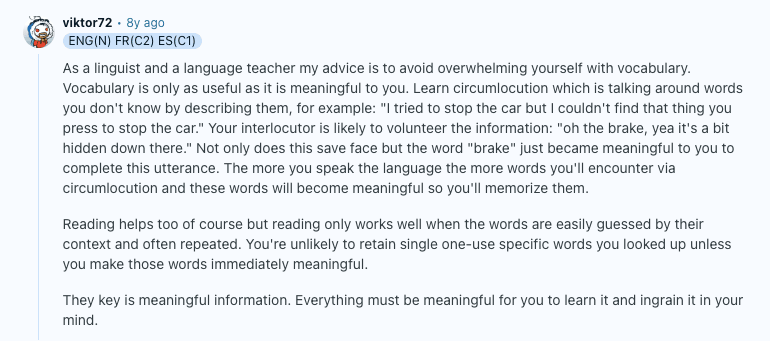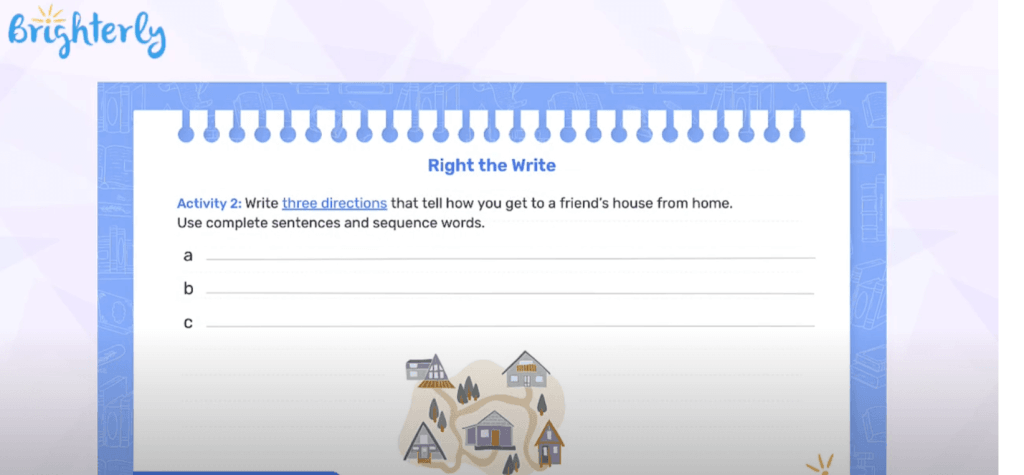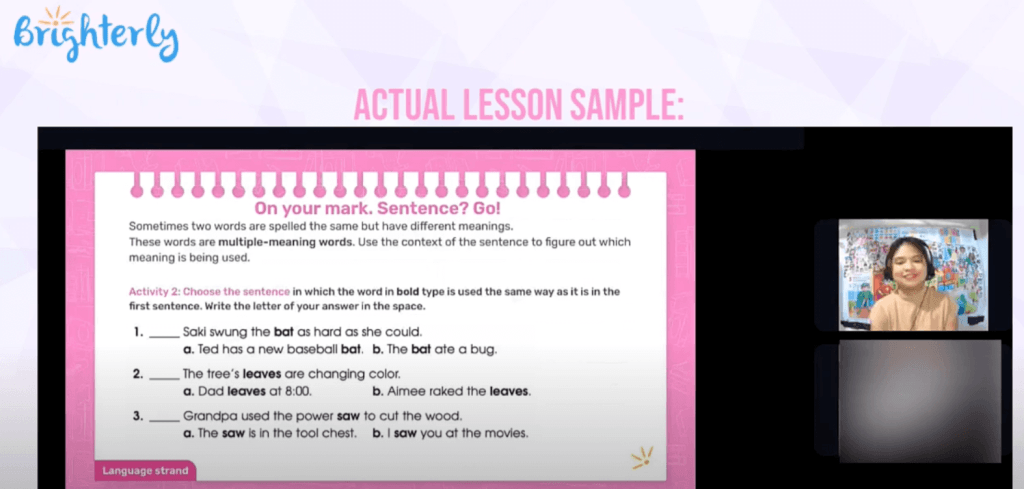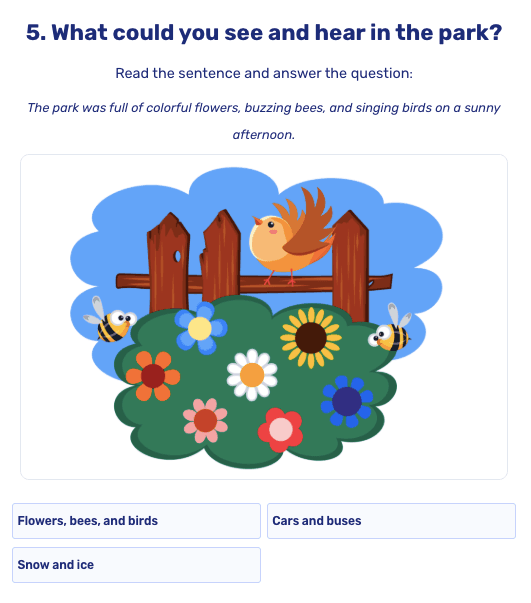How to Improve Vocabulary? Best Methods to Use
reviewed by Marvi M. Andres
Updated on September 22, 2025
Strong vocabulary shapes growth, comprehension, and communication. Yet, knowing words won’t happen overnight. The good news is that the process of learning them is not only rewarding but can also be fun for the learners.
Read on to learn how to improve vocabulary with proven methods and great tips from the tutor community.
What is the best way to improve vocabulary?
The best way to improve your vocabulary is to combine several methods: reading extensively across genres, creating your own vocabulary of unfamiliar words, using them in communication and writing, and making learning them a habit.
But can you just use one method to expand your vocabulary? Yes, indeed! Yet, it won’t be so effective.
The secret formula is to combine discovery and consolidation strategies. The first allows you to explore new words, while the second ensures they stay in the long-term memory.
Note: According to a Florida Journal study, the students prefer building vocabulary by engaging with media, using dynamic learning, practicing, and memorizing.
10 ways to expand your vocabulary
- Read, read, and use worksheets
- Increase vocabulary with tutors
- Use games to improve vocabulary skills
- Turn the vocabulary list into a journal
- Check knowledge through tests
- Leverage flashcards and apps
- Write using new words
- Utilize new vocabulary when speaking
- Leverage media, podcasts, and audiobooks
- Learn a new word every day
The particular methods can help grow your vocabulary and make learning full and interactive. Plus, they are pretty universal as they work for students and children. Besides, these ways to improve vocabulary greatly complement one another, affecting memory retention.
#1 Read, read, and use worksheets
The primary method to expand your vocabulary is by reading. It exposes a learner to numerous new words naturally. When learners read at least 15-20 minutes daily and resort to different genres, they can have excellent results. Importantly, print reading is estimated to boost comprehension skills by 6 to 8 times more, compared to digital reading.
But how to make it more effective, both for children and parents? With reading worksheets!
How to increase your vocabulary with reading worksheets
To support the vocabulary development of your kid, you can use the following guide:
- Pick a worksheet and choose a story that would be interesting for a learner (if you wonder how to make reading fun, it’s one of the ways)
- Identify unfamiliar words together, but don’t stop, keep reading.
- Circle them in a text or worksheet.
- Finish a story and come back to the words.
- Use a worksheet to make exercises dedicated to the words.
Worksheets do bring more engagement and clarity to vocabulary building, offering structure, comprehension, and exercises.
How to expand vocabulary with Brighterly reading worksheets
Brighterly is a tutoring platform that provides 1:1 live sessions to support elementary, middle, or high schoolers. In addition to tuition services, it also offers a notable collection of printable and free reading worksheets for kids.
They differ in level and approach, but surely turn vocabulary improvement into fun.
#2 Increase vocabulary with tutors

Vocabulary development occurs when a child or student practices new words. For this, one needs a certain environment. The one that has:
- Opportunities to use new words.
- Prepared materials and ways for engagement.
- Scenarios for role plays or an agenda for a small two-person reading club on a specific topic.
At times, worksheets may not be enough. That’s where reading tutors come into play with the magic wand of dynamic learning.
How to expand your vocabulary with tutors?
Look for an experienced tutor or private teacher. The professional tutors know how to make vocabulary building engaging. They bring flexibility, collaboration, and games into the center of any learning activity, while keeping structure and clarity.
At the Brighterly math and reading platform, tutors apply these dynamic learning techniques to teach students to read, comprehend topics, and learn new words.
Reading tutors here offer personalized plans and engaging lessons that feel more like play than a chore.
#3 Use games to improve vocabulary skills
Word games and puzzles are among the most effective ways to increase vocabulary. It’s why Duolingo is so popular, right? However, it’s not the only game you can play to grow your vocabulary.
You may try classic games like Scrabble to form words from letters or resort to Crossword puzzles. The latter, if solved regularly, can result in learning lots of words in the long run. Alternatively, you can use a website such as FreeRice, which is fun and offers value for older students.
How to build your vocabulary with games and spaced repetition
You may have heard of spaced repetition, a learning technique that helps remember information by reviewing it gradually. An excellent method is to combine it with games.
For instance, a kid learnt new words about nature. Instead of cramming words, they can play Scrabble with nature as a main theme behind the game.
The right timing can strengthen memory and allow new words to stick in the long term.
Note: A good interval strategy is to represent a word on Day 1 and review it on Day 3. You can review it again in a week and then in a month, or play Scrabble from time to time.
#4 Turn the vocabulary list into a journal
Building vocabulary without writing down the new words is quite hard. That’s why making a list of words is important. Yet, what’s even more effective is turning it into a dedicated notebook or journal.
How to build your vocabulary with a vocabulary journal?
As a teacher, parent, or even a student, it’s important to keep a vocabulary journal. But how? Here are some of the best practices:
- Dedicate a page or half a page for each new word.
- Add antonyms and synonyms of the word for greater comprehension.
- Leave space for personal or cultural examples.
- Review the journal with a kid or tutor.
Note: When learning the word “shiny”, add examples like “shiny ring” and non-examples like “dull stone”.
#5 Check knowledge through tests
One more strategy to increase vocabulary is to do vocabulary tests. You may think that using flashcards is better. Well, they are different. This method is great to check the knowledge upon reading a book, article, or a simple lesson. It shows which words stuck and which do not.
How to improve vocabulary with vocabulary tests?
There are two methods you can resort to build vocabulary skills:
- Use short vocabulary 10-question quizzes or tests, like matching definitions or fill-in-the-blank sentences, every two weeks.
- Use tests to find areas that your kid can improve or learn topics with words that they don’t know.
Note: Online resources turn out to be very helpful. For example, Brighterly offers reading tests depending on grade, while its tutors align programs with the national curriculum and know how to improve reading skills.
These tests are ideal to learn whether they are behind or need to increase vocabulary skills.
#6. Leverage flashcards and apps
Flashcards and apps are great ways to improve your vocabulary. They elaborate on spaced repetition and help memorize words with gamification. Whether you use physical cards or a digital app, it lets you quiz a kid on word meanings. There, a 10-minute practice can bring dividends in the long run.
How to enhance your vocabulary with flashcards?
It’s pretty simple and requires minimal resources from a parent:
- First, write a new word on one side and a definition on the back.
- Give it to a kid to guess it and say the sentence with it.
- Reward a kid with praise or a game.
- Each day, review several cards.
Note: You may use such apps as Quizlet that are really intuitive and allow you to mix old cards with new ones.
#7 Write using new words
You should be aware that writing is powerful for building vocabulary. When you learn a new word, try writing your own sentence with it. Moreover, create a brief story to make up the context to use this word.
How to enhance vocabulary via writing?
Write sentences or a short 5-sentence story with new words that strengthen memory and help a learner use them naturally. But note that the word usage shouldn’t be intensive.
For example, for a 5th grader, the words “curious” and “honest” might be new. So, you can ask your child to write a sentence or a story that describes a time when they felt curious.
#8 Utilize new vocabulary when speaking

Knowing a word isn’t enough, as a child might have never used it. So, speaking allows turning passive vocabulary into active. Just know, each time a student works a new term into a sentence, you’re one step closer to making it a part of your active vocabulary.
How to improve your vocabulary through speaking?
- Include recently learned words in talk with family or friends.
- Make a mini-story or tale with 5-7 new words and tell it to the kids. Ask them to comment or contribute, and watch for new words.
- Ask a student to write a piece and then retell it using the new words.
- To build vocabulary, settle debates with the new words at the core.
Note: An average active vocabulary of an adult is about 20,000 words, while passive is twice more.
#9 Leverage media, podcasts, and audiobooks
Besides reading books, you can also use media, audiobooks, and podcasts on specific topics. Listening is as good as writing or reading, not to mention watching movies or specific lessons with a structured approach.
How to improve vocabulary for students with media and podcasts?
Find the media that provides small and bite-sized pieces of knowledge that are easy to understand. Yet, selecting the right media or podcast may be difficult.
Look for some that are similar to these:
- A series of TikTok videos from the Teacher Project under The New York Times.
- The BBC’s “English In A Minute” is a program dedicated to building English vocabulary.
- The Vocab Man is another podcast that invites learners on a language journey.
Note: Using audiobooks is one of the reading strategies for struggling readers, as it eliminates cognitive load.
#10 Learn a new word every day

Do you remember that consistency is key in vocabulary development? So, a simple way to stay consistent is to learn at least one word every day. For this, you can leverage an array of different resources, like:
- Specific apps that send new words daily
- Dictionary websites
- New York Times website
How to expand your vocabulary with new words every day?
Well, you can add them to your vocabulary journal or just try to use them during the day. Take a moment and learn its meaning. Also, you can look at the roots of the words. As a result of this practice, every time you discover one word, you’ll uncover related ones too. Instead of 10, you will get 20 words to improve your vocabulary each week.
How long does it take to expand your vocabulary?
Expanding vocabulary can take months or even years. If you learn around 10 words a day, then at the end of the year, you can learn 3,000 new words.
Note: An average 5-year-old knows up to 2,500 words, while a 12-year-old knows 50,000 words. Yet, an average native speaker knows 15,000 to 20,000 word families.
How to improve vocabulary Reddit & Quora? Top 3 tips
- Avoid overwhelming and learn circumlocution
- Read classic books
- Collect words and be inspired by other languages
First of all, one of the tips to improve vocabulary came from suggesting describing new words with other words until learners memorize them.

Another strategy for vocabulary building suggests resorting to classic books, like those by W. Shakespeare or O. Henry.

Lastly, as a parent, tutor, or even student, you can read and find inspiration in other languages:

Frankly, this one I’d surely use to increase my vocabulary.
Conclusion: What is the best way to expand vocabulary?
The best way to increase vocabulary is by combining different methods and being consistent. Each of the above tips can reinforce the others and help words stay in active vocabulary. So, my best advice is to practice daily and connect words to real-world situations.
If you want guided support in growing your kid’s vocabulary and reading skills, try Brighterly’s 1:1 tutoring platform. Book free reading lesson today!


















